Synopsis
When did the postwar period end?
- Programme: Politically
- Series: Postwar
- Episode: 19: Post-postwar
- Channel: BBC Radio 21
- Broadcast year: 2025
- History | Cold War
Licence: ERA Licence required
UK only
Staff and students of licensed education establishments only
Cannot be adapted
Add Notes
More clips from Politically
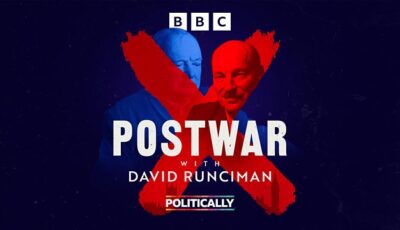
Postwar: 1: The Rejection | Politically
Postwar: 1: The Rejection | Politically
David Runciman tells the story of the 1945 election and the dawn of a new age. Why did Winston Churchill find himself so decisively r...
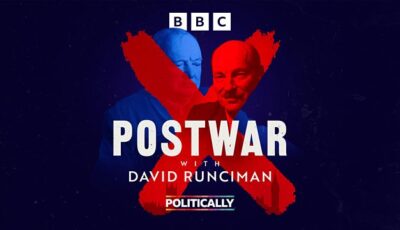
Postwar: E10: India and Empire | Politically
Postwar: E10: India and Empire | Politically
The question of self-government for India would have to be confronted when war was over.

Postwar: E11: Homes for Heroes | Politically
Postwar: E11: Homes for Heroes | Politically
In the end, the election was fought and decided over two main issues: demobilisation and housing.

Postwar: E12: Art, War and Propaganda | Politically
Postwar: E12: Art, War and Propaganda | Politically
With the formation of the Arts Council in 1945, on-going state patronage of the arts began.

Postwar: E13: From Yalta to Potsdam | Politically
Postwar: E13: From Yalta to Potsdam | Politically
Between the Yalta and Potsdam conferences, everything changed.

Postwar: E14: United Nations | Politically
Postwar: E14: United Nations | Politically
Both main parties supported the United Nations, but they disagreed about what that meant.

Postwar: E15: Debt to America | Politically
Postwar: E15: Debt to America | Politically
In 1945, Britain was the most indebted country in the world.

Postwar: E16: The Result | Politically
Postwar: E16: The Result | Politically
The immediate result of the general election was silence: a three-week hiatus.

Postwar: E17: A New Jerusalem? | Politically
Postwar: E17: A New Jerusalem? | Politically

Postwar: E18: Churchill: Lion in Winter | Politically
Postwar: E18: Churchill: Lion in Winter | Politically
What happened to Winston Churchill in the years after the 1945 general election?

Postwar: E2: Mr Churchill and Mr Attlee | Politically
Postwar: E2: Mr Churchill and Mr Attlee | Politically
With the war in Europe at an end, Churchill and Attlee became fierce election rivals.

Postwar: E20: What if? | Politically
Postwar: E20: What if? | Politically
What would Britain have been like if Winston Churchill had won the 1945 general election?

Postwar: E3: The Beveridge Report | Politically
Postwar: E3: The Beveridge Report | Politically
William Beveridge's plan was an answer to the question of what we were fighting for.

Postwar: E4: Public Opinion | Politically
Postwar: E4: Public Opinion | Politically
How could politicians know what voters were thinking in 1945?

Postwar: E5: The Soldiers' Election | Politically
Postwar: E5: The Soldiers' Election | Politically
During the 1945 election, there were still almost five million servicemen and women.

Postwar: E6: Appealing to Women | Politically
Postwar: E6: Appealing to Women | Politically
How did the election reflect the dramatically changed working lives of women?

Postwar: E7: The Labour Manifesto | Politically
Postwar: E7: The Labour Manifesto | Politically
Uniquely in modern British history, the 1945 Labour Manifesto was a genuine bestseller.

Postwar: E8: Healthcare for All | Politically
Postwar: E8: Healthcare for All | Politically
The war changed many things, and access to healthcare was one of them.

Postwar: E9: Churchill's 'Gestapo' Broadcast | Politically
Postwar: E9: Churchill's 'Gestapo' Broadcast | Politically
Winston Churchill's first election broadcast in 1945 might be remembered as his greatest gaffe.
More resources about Britain’s changing role in the world
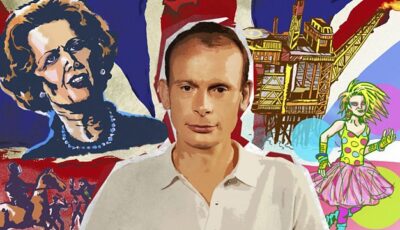
5: New Britannia | Andrew Marr's History of Modern Britain
5: New Britannia | Andrew Marr's History of Modern Britain
In the final part of Andrew Marr's national saga, Britain enters the post-Thatcher era. Many have done well during...

4: Revolution | Andrew Marr's History of Modern Britain
4: Revolution | Andrew Marr's History of Modern Britain
Andrew Marr revisits the Britain of Margaret Thatcher and comes to some surprising conclusions about the British nati...
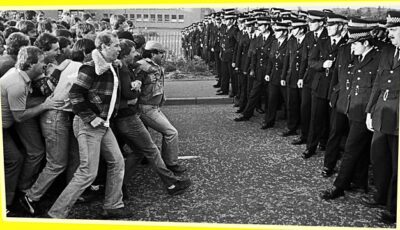
Miners' Strike: A Frontline Story
Miners' Strike: A Frontline Story
Featuring compelling testimony, this is the story of 15 men and women and one life-changing year on the front line of the most divisive con...
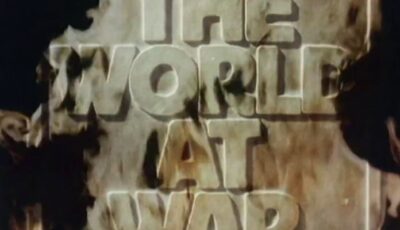
2: Distant War | The World at War
2: Distant War | The World at War
An uneasy calm settles on Britain as Churchill replaces Chamberlain as prime minister.
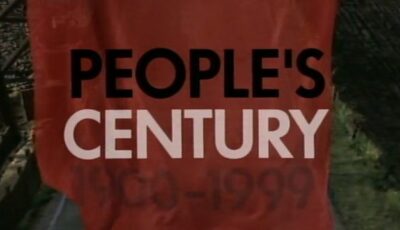
21: 1968: New Release | People's Century
21: 1968: New Release | People's Century
The baby boom produced a cohort of children in the affluent and secure post-war world who for the first time would question establis...
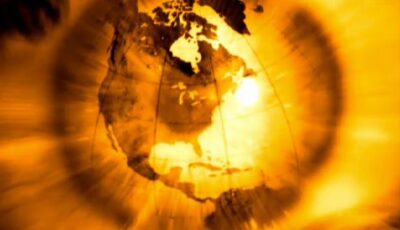
S2E4: The Great Train Robbery | Days That Shook the World
S2E4: The Great Train Robbery | Days That Shook the World
The Great Train Robbery on August 8, 1963.

17: 1959: Endangered Planet | People's Century
17: 1959: Endangered Planet | People's Century
Rising consumption patterns extract a huge toll on nature. Toxic contamination in Minamata and Love Canal and the Torrey Canyo...

2: Churchill | Secrets of Leadership
2: Churchill | Secrets of Leadership
Andrew Roberts reveals many of Churchill's weaknesses as a subordinate in charge of the Royal Navy, and the great strengths they became ...
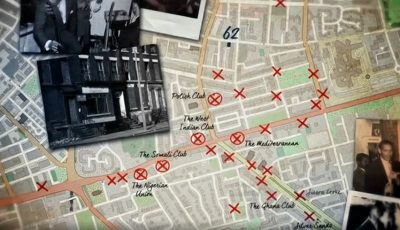
Liverpool in the sixties | A House Through Time
Liverpool in the sixties | A House Through Time
David Olusoga explores the boom in art, music and culture in Liverpool during the swinging sixties.

Ian Hislop's Fake News: A True History
Ian Hislop's Fake News: A True History
Ian Hislop's sharp, provocative take on 200 years of fake news and its consequences - from Victorians on the moon to 21st-century deep...

Postwar: E18: Churchill: Lion in Winter | Politically
Postwar: E18: Churchill: Lion in Winter | Politically
What happened to Winston Churchill in the years after the 1945 general election?
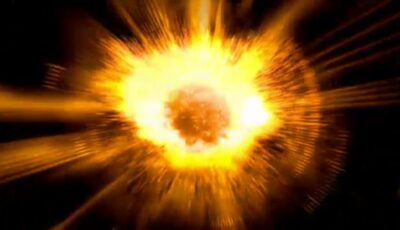
S3E1: The Cost of Betrayal: The Defection of Burgess & MacLean | Days That Shook the World
S3E1: The Cost of Betrayal: The Defection of Burgess & MacLean | Days That Shook the World
Donald Maclean and Guy Burgess's escape to Moscow in 1951.

1: 1900: Age of Hope | People's Century
1: 1900: Age of Hope | People's Century
At the beginning of the twentieth century the world was stable and certain, but unequal. The Paris Exhibition of 1900 symbolises the ...
1: Leaders | Icons
1: Leaders | Icons
Trevor examines the lives of Winston Churchill, Franklin Delano Roosevelt, Margaret Thatcher and Nelson Mandela. He discovers exactly what made each of th...

20th Century Wrap: 3: 1930s: What Depression? | History File
20th Century Wrap: 3: 1930s: What Depression? | History File
This programme covers the 30's and the extent of the depression. Contemporay film-makers recorded a vivid pictu...

S10E2: The Comet Cover-Up | Secret History
S10E2: The Comet Cover-Up | Secret History
Documentary about the world's first jet passenger airline, the Comet, which, two years after its launch in 1952, was grounded inde...

S3E4: The Two Winstons | A History of Britain by Simon Schama
S3E4: The Two Winstons | A History of Britain by Simon Schama
Examining the 20th century through the lives of Winston Churchill and George Orwell, who both wrote about the D...

04: Sea Change | Empire of the Seas: How the Navy Forged the Modern World
04: Sea Change | Empire of the Seas: How the Navy Forged the Modern World
Dan Snow looks at how the 19th-century Navy used gunboat diplomacy to push British interests furthe...

13: Tough Old Gut | The World at War
13: Tough Old Gut | The World at War
Churchill described Italy as the 'soft underbelly of the crocodile', thinking the Allies could cut through it to reach Germany. However,...

26: 1997: Fast Forward | People's Century
26: 1997: Fast Forward | People's Century
Governments around the world liberalise trade and withdraw from intervening in the economy, giving new opportunities to those who a...
